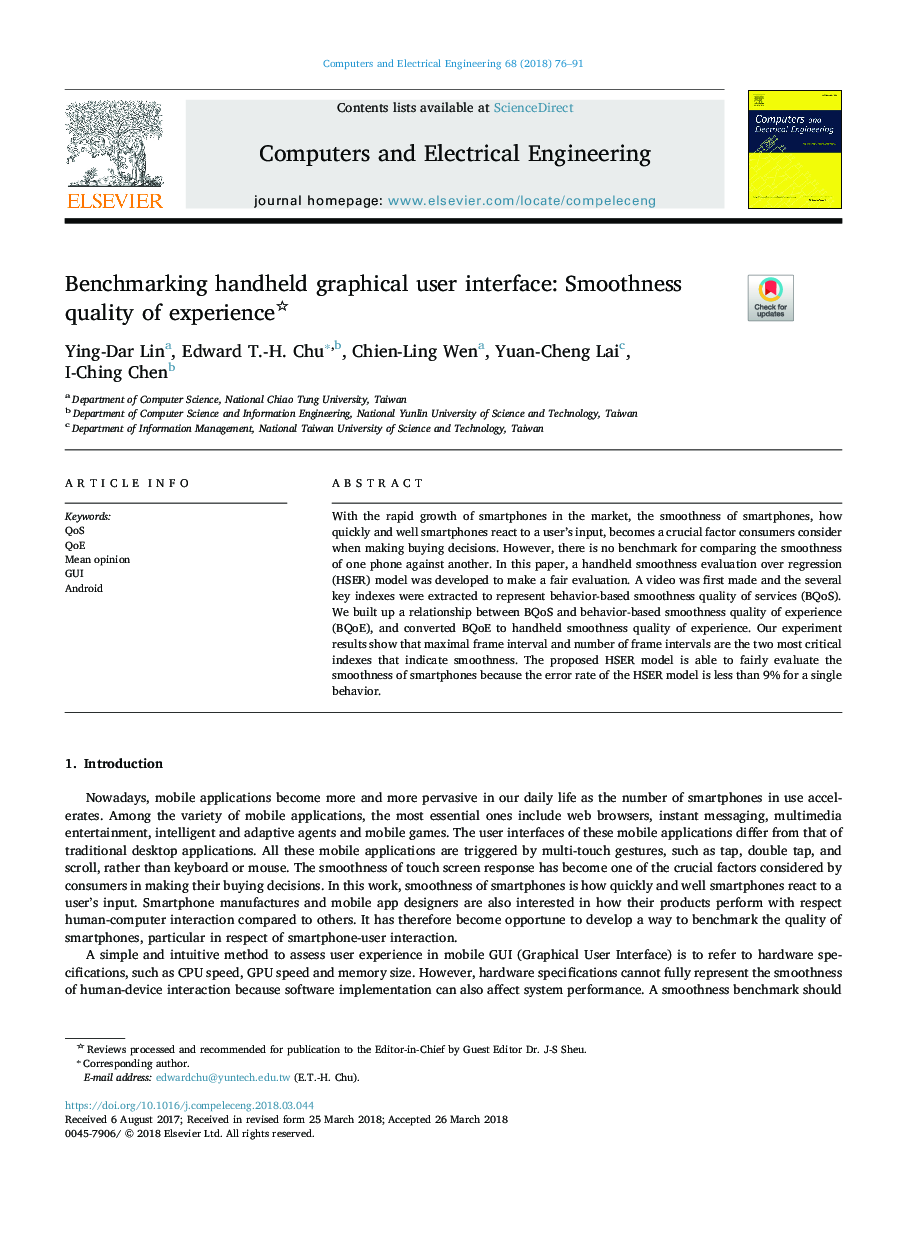| Article ID | Journal | Published Year | Pages | File Type |
|---|---|---|---|---|
| 6883356 | Computers & Electrical Engineering | 2018 | 16 Pages |
Abstract
With the rapid growth of smartphones in the market, the smoothness of smartphones, how quickly and well smartphones react to a user's input, becomes a crucial factor consumers consider when making buying decisions. However, there is no benchmark for comparing the smoothness of one phone against another. In this paper, a handheld smoothness evaluation over regression (HSER) model was developed to make a fair evaluation. A video was first made and the several key indexes were extracted to represent behavior-based smoothness quality of services (BQoS). We built up a relationship between BQoS and behavior-based smoothness quality of experience (BQoE), and converted BQoE to handheld smoothness quality of experience. Our experiment results show that maximal frame interval and number of frame intervals are the two most critical indexes that indicate smoothness. The proposed HSER model is able to fairly evaluate the smoothness of smartphones because the error rate of the HSER model is less than 9% for a single behavior.
Related Topics
Physical Sciences and Engineering
Computer Science
Computer Networks and Communications
Authors
Ying-Dar Lin, Edward T.-H. Chu, Chien-Ling Wen, Yuan-Cheng Lai, I-Ching Chen,
